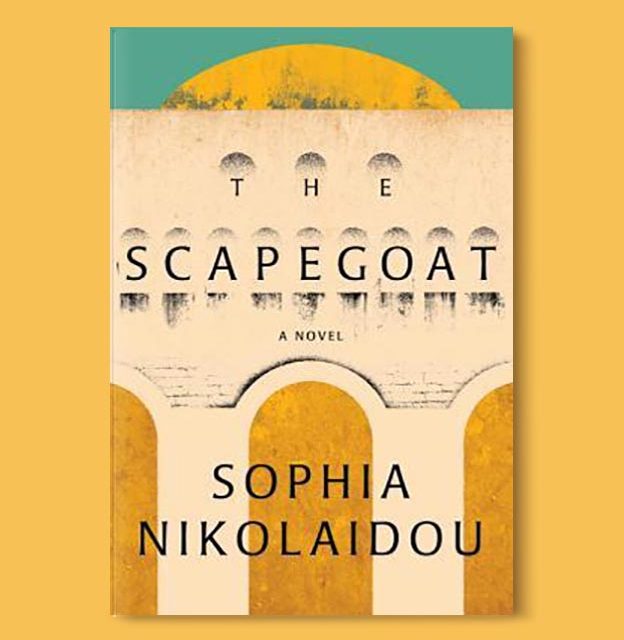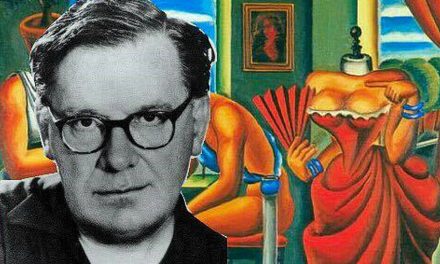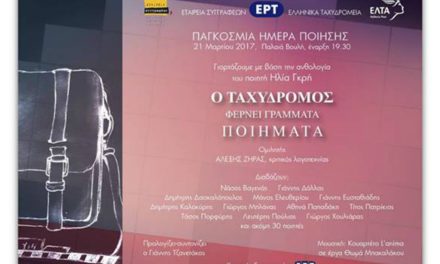In 1948, the body of an American journalist is found floating in the bay off Thessaloniki. A Greek journalist is tried and convicted for the murder, but when he’s released twelve years later, he claims his confession was the result of torture. Flash forward to modern day Greece, where a young, disaffected high school student is given an assignment for a school project: find the truth. And as he begrudgingly takes it on, he begins to make a startling series of gripping discoveries – about history, love, and even his own family’s involvement.
Based on the real story of famed CBS reporter George Polk—journalism’s prestigious Polk Awards were named after him—who was investigating embezzlement of U.S. aid by the right-wing Greek government, Nikolaidou’s novel is a sweeping saga that brings together Greece of the post-war period with the current era, where the country finds itself facing turbulent political times once again.
Told by key players in the story—the dashing journalist’s Greek widow; the mother and sisters of the convicted man; the brutal Thessaloniki Chief of Police; a U.S. Foreign Office investigator—it is the modern-day student who is most affecting of them all, as he questions truth, justice and sacrifice, and how the past is always with us.
In an interview to Reading Greece, Nikolaidou noted that she was really interested in putting together two different ages of Modern Greek history. “I wanted to capture the historical adventure of my country. Some things change, because circumstances around us have changed as well. Other things remain hidden and unpunished – they poison everything. Some are carried from one generation to the next. We think that we have left our past behind. Alas, we always find it ahead”.
In The Scapegoat major questions arise, while times are changing and one generation passes on the torch to the other: What happens to a country where silence is hereditary, like genetic material? What would have happened, if Greek politicians had more backbone and the great powers less of a tendency to impose their will? What happens if someone avoids the lesser of two evils, but never aims for the best? Does the past teach us lessons? Is passivity in the face of injustice a crime? Why is it so difficult to teach a smart kid?
Masterfully translated by Karen Emmerich, the book constitutes “an utterly compelling meditation on the nature of political truth, compromise, and justice and at the same time an evocative reflection on family dynamics and generational change. The symphony of voices…swells in the reader’s imagination”. Nikolaidou creates a compelling cast of characters whose varied perspectives “create a snapshot of lives in turmoil in a place of deep history and even deeper conflict”. Karen Emmerich says in her Note from the Translator: “In putting the story of Manolis Gris alongside the current crisis in Greece, Nikolaidou implicitly argues that the injustices of the past are still with us, and that scapegoating of all kinds – of political opponents, of immigrants, of the youth who will bear the brunt of the current financial crisis, even of Greece itself within the European Union – pervades the current moment”.

Sophia Nikolaidou was born in Thessaloniki in 1968. One of modern Greece’s most significant young novelists, she has published two collections of short stories – Fear Will Find You and You Will Be Alone (1999) and Blonde Run Over (1997) – and five novels – Planet Prespa (2002), The Purple Maestro (2006), No friends tonight (2010), The Scapegoat (2012), Winner at last (2017) – which have been translated into eight languages. She has also published a non fiction novel So far so good (2015), studies on creative writing and on the use of ICT in education and translated ancient Greek drama into Modern Greek. She teaches literature and creative writing and writes criticism for various newspapers. Her novel, No Friends Tonight won the 2011 Athens Prize for Literature, and The Scapegoat was shortlisted for the 2012 Greek State Prize for Fiction. Her latest book is titled The Gold Bracelet and refers to real stories of people who “wore” their University diploma as a gold bracelet.
TAGS: LITERATURE & BOOKS | READING GREECE













